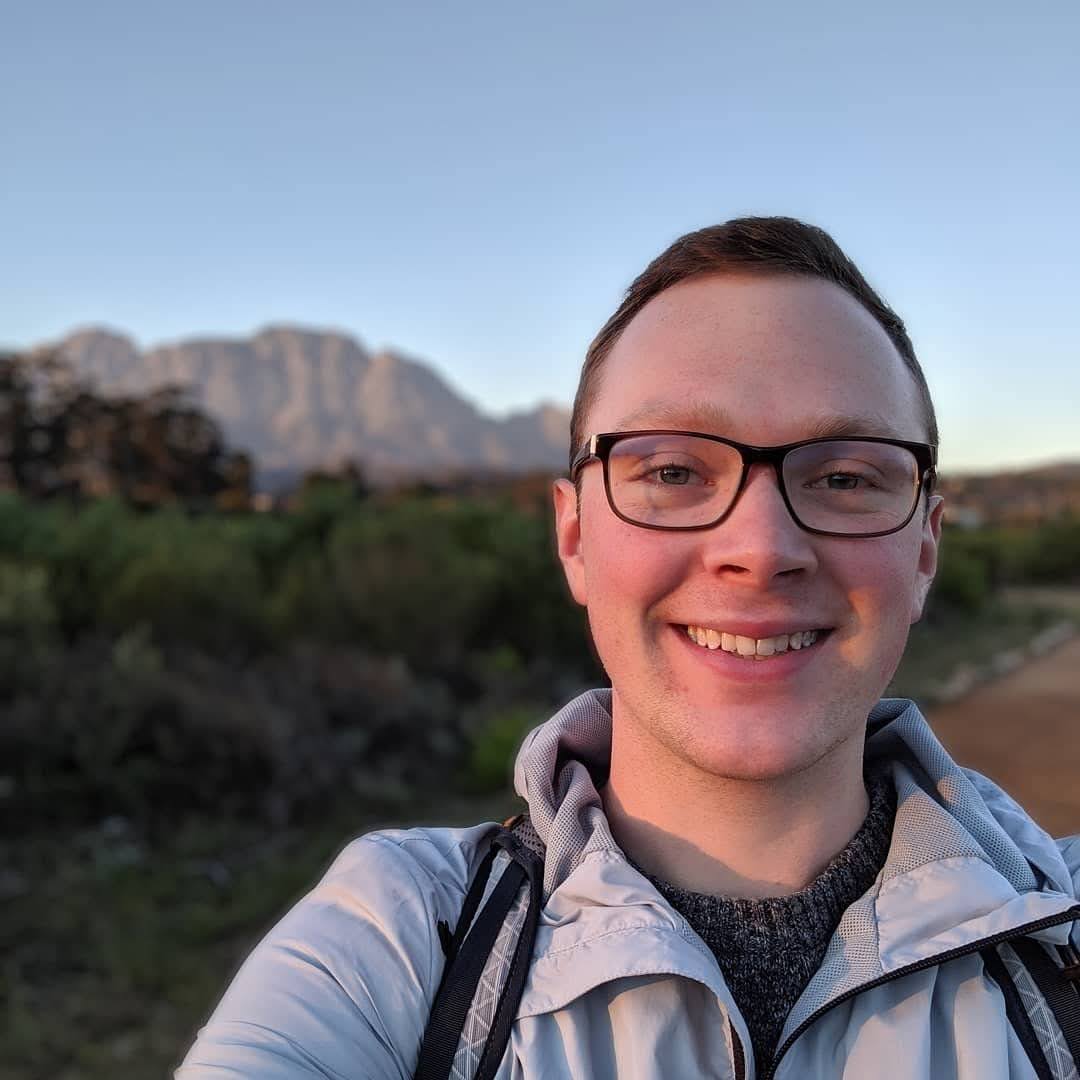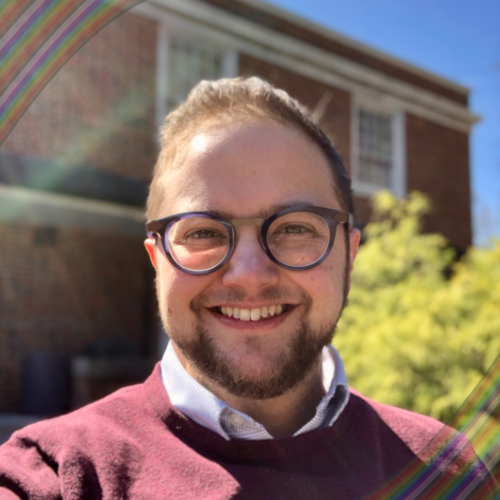Picture it: Rainbows. Everywhere. Rainbow balloons. Rainbow t-shirts. Rainbow flags. Rainbow signs. You feel the heavy humid air and smell the rainclouds preparing to unleash on the protest, yet there is joy and excitement filling the streets.
It was Saturday, June 29th, 2019—Manila’s Pride Parade, and the LGBTQ community of Manila, Philippines came out in droves. With over 77,000 people marching through the streets, this celebration and protest became the largest celebration of LGBTQ individuals in Southeast Asia. Nestled in that mass of people was a group of theologically conservative, rural farmers, marching alongside their queer brothers, sisters, and siblings, demanding justice and legal protections. How did these farmers end up at a Pride parade?
A few weeks later, PC(USA) Mission Partner Cathy Chang introduced me to Field Education Director Kakay Pamaran, Professor Revelation Velunta, and Filipino-American Professor Michael Campos. When I visited, all three were working at Union Theological Seminary, the oldest Protestant seminary in the Philippines. As we sat around a circular table drinking coffee in the early afternoon, Michael spoke in a warm tone that provoked curiosity, as if he was preparing to tell this story to a group of friends he hadn’t seen in a long time, “So I went to my first pride march in the Philippines, right?”
And excitement in the room grew. Astounded and full of pride, Revelation exclaimed: “Over seventy-thousand!!” Michael continued, “Having lived in the US for so long, I’ve stopped going to Pride because it’s become so corporate heavy, especially in San Francisco. It’s like ‘okay, straight people, why are you here?’ Initially, the allyship was important, but suddenly, it’s like the corporations are [walking] right behind me [in the parade].” So when I came here, I had a similar expectation, knowing that for the most part…queer life in the Philippines has always been through the lens of class.”
He explains that terms such as “LGBT” are Western in origin and function. Such terms assume specific demarcations around gender and orientation. Would this same thing appear in Manila’s Pride? He cautiously approached Manila’s pride, knowing it might be a “mimicry of what happens in the West.” He asks, “In an attempt to be progressive, how could we be reiterating certain tropes without being thoughtful about it, and, in in the process, silencing our own [people]? … Is it specially a middle-class phenomenon? Is it a copy and paste of Western thought?” His thought? It is different in the Philippines. It may look the same on the surface, but underneath, much more is happening that the untrained eye may not see.
But before I could dive into questions, Michael shifted to Kakay and asked her to provide some background on these curious farmers. The farmers were residents of a community called Lupang Ramos. For decades, this community has fought the government for ownership of over 900 acres of land they have been living on for generations. Many claim this land, but the farmers have organized themselves. In 1987, 13 farmers were killed and 51 were injured as they marched for land reform. Little reform has come since what was named the “Mendiola Massacre,” and farmers are still fighting for justice amidst military harassment, intentional destruction of crops,[i] and most recently, attempted eviction a few days before Christmas in 2020.[ii]
As the Director of Field Education, Kakay has developed a relationship with the farmers. She sends students to go and help with weeds, and they have raised funds for farming equipment and a tin roof. Revelation said they do this sort of work “so they don’t feel like they are being proselytized. What we do is really solidarity work. And we’re there because we want to learn from them—not the other way around!” He continued, “The Iron Rule: Never do unto others what they can do for themselves.” In awe and wonder, Kakay said, “How do you preach the parable of the sowers to actual sowers? Read it in Tagalog, and they would interpret it beautifully. Then you just shut up. That’s also where the richness and depth of our theologizing comes from because, while working with them, I realized that they didn’t just want a church but it was a demand for higher solidarity.” Now, UTS has a partnership with the farmers. If they are harmed by whomever, UTS has an obligation to be there and stand with them. One time four vehicles showed up at the school, and their leaders said they needed someone to stand in for their lawyer. Having no legal experience, Kakay said with a chuckle, “Just wear your [clergy] collar and pretend you know what you’re doing.”
After years of being in relationship, some leaders approached Kakay and asked to learn about LGBT with them. They said they thought one or two of their colleagues might be gay, and they wanted “to learn how to be better comrades with them.” The farmers’ church is a “shack,” and they sat in the shack with their dogs listening and learning from the Seminary about sexual orientation, gender identity, and gender expression. Michael said, “Everyone acted like it was the most normal thing on the face of the earth, and I was the one astounded.” As UTS began to prepare for Pride, the farmers said, “Since this is an important issue for you, we’re going with you.” This is solidarity. The farmers went with their LGBTQ siblings to Pride.
Taking five vehicles, families—kids and grandparents—marched with the churches at Pride. Kakay worried it was going to be too much culture shock for them, so she said to them, “Where we are going is going to be shocking for many of you… and the leaders said, ‘It’s okay pastor, we can handle it!’” She started laughing, full of joy, as she showed me photos of them holding signs saying, “Farmers side with LGBT.” In the heavy rains, grandfathers and children stood, taking selfies in the mud with their rainbow signs. I was told the biggest concern for the farmers was the logistics: Who is going to cook lunch? How many packed lunches are we going to bring? When are we leaving? Who is riding with whom?
Justice is the basic assumption. Kakay said justice “needs to be the assumption under all other conversation. It needs to be the sinews that hold the beloved community together. They will stand with you, take a bullet for you. If that had become a violent Pride march, they would have been there for you. I’m confident they would do that.” Michael reflected, “When justice becomes your common language, it doesn’t matter what your issues are. You’re not territorial about issues; your issues are necessarily intersectional. The fact that we [in the United States] must name intersectionality means that we don’t have it. It’s a struggle. The fact that here you don’t have to name it is profound.”
“Resist Together” was Manila Pride’s theme in 2019. Revelation remarked, “This is why we’re together—the Lumads, the farmers, the LGBT—because we’re all fighting for justice.”
Imagine true solidarity. In the Gospel according to Luke, Jesus is asked “Who is my neighbor?” (Lk 10:29, NRSV). Jesus responds with the parable of a Samaritan man helping a Jewish man who was robbed, stripped, and beaten. The Samaritan man sanitizes and bandages his wounds, and he takes him to an inn to recover. Jesus ends the story saying, “The one who showed him mercy… Go and do likewise” (Luke 10:37, NRSV). This is how Christians are called to participate in the world—seeking true solidarity with our neighbors—no matter who they are.
As I returned to my room on campus, the waning sunlight stopped me in my tracks as golden purple rays shone across the trees. I stood in awe of this land and people, realizing how much I still had to learn, and asking myself, “How can we fully live out our spoken commitments to justice? How do we make justice our way of life? Can we develop a loyal justice that seeks the wellbeing of the Beloved Community and not just our corner of the church?”
[i] Umali, Justin, “The Continuing Struggle of Lupang Ramos,” Esquire Magazine Philippines (March 15, 2019), https://www.esquiremag.ph/long-reads/features/lupang-ramos-agrarian-reform-a2212-20190315-lfrm2.
[ii] Umali, Justin, “Farmers in Lupang Ramos successful vs. threats of eviction days before Christmas,” Bulatlat (December 24, 2020), https://www.bulatlat.com/2020/12/24/farmers-in-lupang-ramos-successful-vs-threats-of-eviction-days-before-christmas.

Jason Dauer (he/him) is moments away from receiving his Master of Divinity from Pittsburgh Theological Seminary and is preparing for ordination in the PC(USA). He is currently working to form a new queer-inclusive faith community in the East End of Pittsburgh as part of the PC(USA)’s 1001 New Worshipping Communities Initiative. Together with his husband, David, they are still learning what it means to be in a city that celebrates its ketchup.






Unbound Social